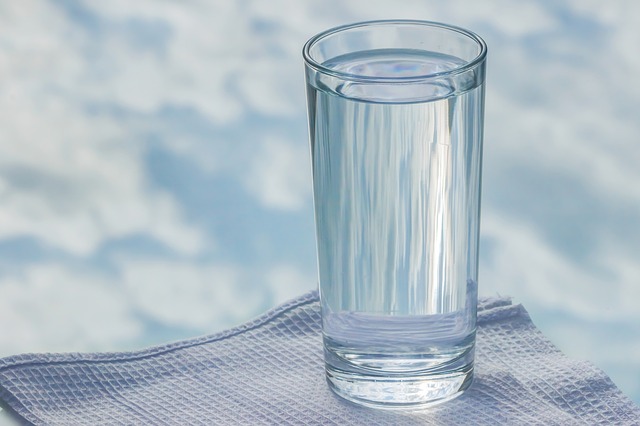ⓘThe order includes a sampling kit, a prepaid return label, and a detailed analysis report
Test Tap Water – Easily Detect Contaminants & Heavy Metals
Home Drinking Water Analysis: Test for Heavy Metals, Bacteria, PFAS
Even though Swiss tap water is strictly monitored, contaminants like lead, PFAS, bacteria and pesticides can still enter your drinking water through old pipes or fixtures. With our professional drinking water test kits, you can easily perform a comprehensive water analysis at home – safe, simple and without any expertise.
✔ Heavy metals and pollutants
✔ For general drinking water, softeners
✔ Legionella, heavy metals and pollutants
✔ For general drinking water and softeners
✔ Heavy metals and contaminants
✔ Separate bacteria test recommended
✔ Heavy metals and contaminants
✔ Separate bacteria test recommended
✔ Analysis for lead also included
✔ Separate bacteria test recommended
✔ Focus on bacterial contamination
✔ For general drinking water, softeners
✔ Risk of transmission during showering
✔ Causes Legionnaires' disease
✔ Most common contaminants
✔ Bacteria analysis available separately
✔ 12 common pharmaceuticals
✔ e.g., diclofenac, ibuprofen
✔ Most common pesticides
✔ Glyphosate separate analysis
✔ Most affordable alternative
✔ More parameters available
✔ E. coli, coliform bacteria
✔ Enterococci
✔ Commonly used pesticide
✔ Possibly carcinogenic
✔ 20 common PFAS chemicals
✔ Per- and polyfluorinated alkyl substances
Get Your Results in Just 3 Steps

❶ You can easily order the test kit for the analysis here in our shop. Our water test kit will be conveniently sent to your home within a short time.
❷ You take the water sample yourself. Thanks to the detailed instructions, you do not need any previous knowledge. Now all you have to do is send the test kit to the provided address. In the laboratory, your sample is examined for all parameters of the test.
❸ Our experts will examine your sample in the laboratory. Afterwards, you will receive a comprehensive result that clearly explains all measured values with the help of graphics.
Get Your Results in Just 3 Steps:
❶ Order the analysis: Request the test kit and conveniently collect the sample yourself.
❷ Send the sample: Drop off the test kit with the return label at the post office.
❸ Receive your results: Clear and easy-to-understand analysis with detailed graphics.
Tap Water Testing in Switzerland – What You Should Know
In 2019, drinking water inspections in the canton of Zurich revealed traces of the carcinogenic pesticide chlorothalonil. One in three samples contained high concentrations. Such limit exceedances still occur today. Should you be worried about drinking tap water?
Is tap water drinkable in Switzerland?
 Tap water in Switzerland meets very high quality standards and is the most monitored food item. It must comply with the TBDV regulations (Ordinance of the FDHA on drinking water and water in public baths and showers). About two-thirds of the population regularly drink tap water – many of them daily.
Tap water in Switzerland meets very high quality standards and is the most monitored food item. It must comply with the TBDV regulations (Ordinance of the FDHA on drinking water and water in public baths and showers). About two-thirds of the population regularly drink tap water – many of them daily.
Despite strict monitoring, contamination can occur – especially inside the house. The water supplier is only responsible up to the house connection. Old pipes or fittings can release pollutants into the water. That’s why regular drinking water analysis can be useful.
Where does Switzerland's tap water come from?
The sources of Swiss drinking water:
- 40% spring water
- 40% groundwater
- 20% surface water (e.g. from lakes)
60% of the water is so clean that it requires no treatment. The remaining water – e.g. from lakes – is treated in modern facilities and then distributed to households via a wide supply network.
Why is a drinking water test worthwhile?
The water supplier only guarantees quality up to the water meter. Afterwards, contamination can occur through home installations. A drinking water test provides clarity about the actual water quality in your household.
Common sources of contamination:
- Taps, hoses or old faucets
- Unmaintained water filters
- Boilers, hot water tanks
- Coarse particle filters
- Technical systems in the house
- Private wells
Regular tap water testing helps to ensure water quality – especially in old buildings or households with sensitive individuals.
When is a drinking water test especially important?
- You drink tap water daily
- Your water has unusual colour, smell or taste
- Your household includes babies, children, pregnant women or ill persons
- You prepare baby food with tap water
- Your home is over 100 years old (possible lead pipes)
- You use a sparkling water machine
How does a drinking water test work?
Simply order a test kit in our shop. You collect the sample yourself – whenever and wherever it suits you. The water is then analysed in the lab.
The test kit includes:
- Sample containers
- Form with instructions
- Return box with label
Once submitted, your sample is analysed by trained laboratory staff. You will receive the results clearly prepared – usually within a few days.
How much does a tap water test cost?
A simple quick test with test strips is already available for a few francs – ideal for an initial check. For more accurate results, a professional lab analysis is recommended.
The cost of a detailed drinking water analysis ranges between CHF 50 and over CHF 200, depending on scope. If you need an official report for authorities, sampling must be done by trained staff – with additional costs for travel and collection.
The more parameters tested (e.g. heavy metals, PFAS, germs), the more expensive the test. Combined water analyses are therefore particularly recommended.














